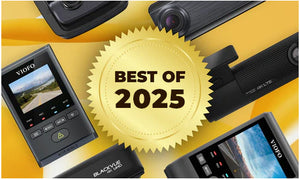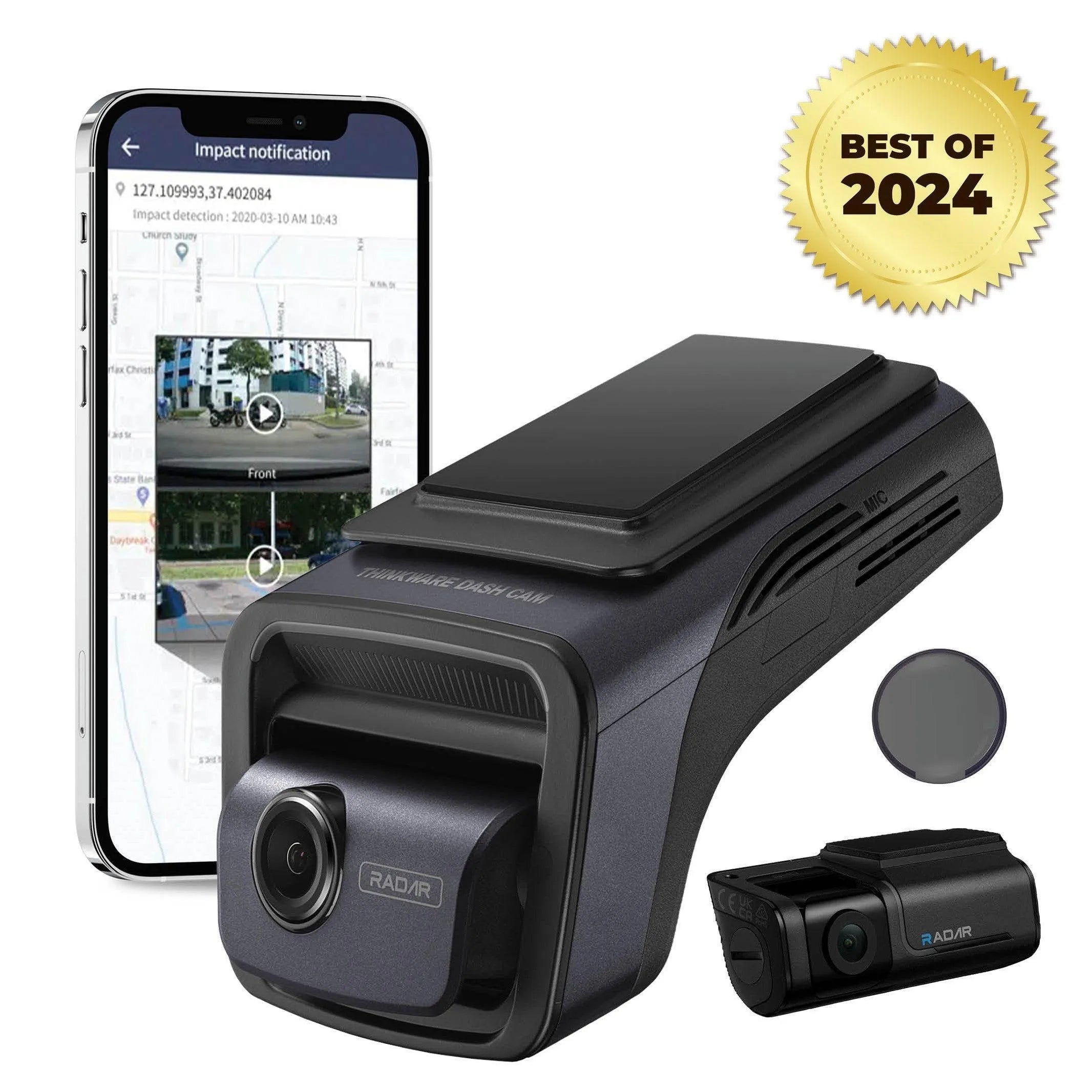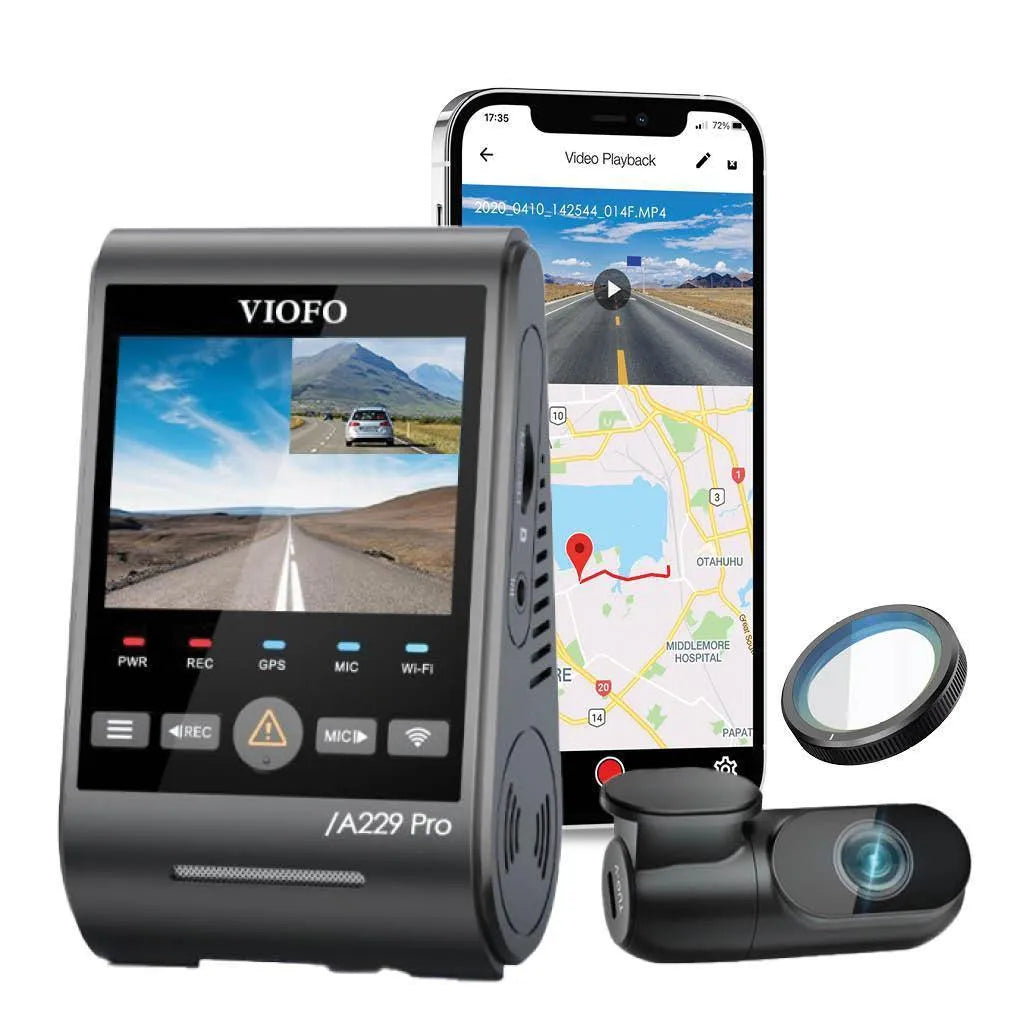How does the wi-fi in your dash cam work?
What to Look For in Your Dash Cam Wi-Fi
The Era of Smart Devices
Welcome to the era of smart devices – where everything can be accessed anywhere. Beyond smartphones and computers, dash cams have also developed this technology, thanks to a feature called Wi-Fi Connectivity.
There are many misconceptions about Wi-Fi features in dash cams, and many drivers expect more (and less) when it comes to “Wi-Fi” in dash cams. In this article, we will explain how Wi-Fi in dash cams really works, while also going through the different Wi-Fi types, plus what you should exactly look for in this specific feature.
How does the Wi-Fi in a Dash Cam work?
The Wi-Fi capability in dash cams allows the dash cam to pair wirelessly with your smartphone, eliminating the need for an internet connection. Yes, it’s just like a Bluetooth device. However, dash cams primarily communicate over Wi-Fi rather than Bluetooth.
If your dash cam has Wi-Fi, you get faster access to your dash cam footage. Dash cams with Wi-Fi capabilities can provide visual and straightforward evidence of an accident without removing the memory card. This is especially important if you need to check videos quickly, such as if you were pulled over by police or were in an accident. Taking out the SD card and looking for a computer to play the footage is time-consuming and inconvenient.
Another benefit of wifi is configuring settings. If your dash cam has Wi-Fi, you automatically get access to the manufacturer’s dedicated smartphone app, where you can also change your settings. Here, you don’t have to mess around with a tiny built-in screen on your dash cam or go through awkward settings menus.
With Wi-Fi, you can use your phone to change the settings or recording quality. The smartphone will work as a remote control that you can use to control multiple aspects of the car camera.
Oh, why didn’t they just make it a Bluetooth connection?
The reason behind using Wi-Fi connectivity instead of Bluetooth is mostly because of faster data transfer speeds. One of the advantages of Wi-Fi is being able to stream and download videos, and the process of downloading and streaming footage can consume too much data for a typical Bluetooth connection, especially with the high resolutions of modern dash cams. Whereas Wi-Fi allows for a far faster and more consistent watching experience, with a longer range as well.
With all that being said, some more premium brands have begun incorporating Bluetooth connections into their WiFi dash cams, using Bluetooth to assist in a seamless connection and pairing process (BlackVue), and allowing simple functions to be more conveniently controlled through Bluetooth (Thinkware).
What Dash Cam Wi-Fi is not
When many people first approach wifi in a dash cam, they can have some misunderstandings about what it can provide. While yes, Dash Cam wifi is a wifi-based connection, the connection is purely between your phone and the camera, and will not grant you access to the internet in the same way your house wifi will.
Since the dash cam wifi is not a true wifi connection, that does mean that some phone models can have a few initial issues connecting, turning down the connection since it is, more or less, not true wifi. This is fully fixable, check out our Dash Cam Wi-Fi Troubleshooting Guide.
The silver lining here is that since dash cam wifi is not a true wifi connection, this means that it is not dependent on any outside source of wifi, allowing you to connect to the camera even when out in the back-country, where no sources of wifi or data are present.
Beyond that, do not expect a simple wifi dash cam to be able to provide you with a remote connection to the vehicle and the camera’s status. While this is possible, and there are cameras that can provide you with remote real-time notifications and mobile file storage, this is referred to as the Cloud service. The Cloud is mainly found in more premium models, and will require a constant wifi or internet connection outside of the camera for the camera to constantly connect to. The Cloud is rather advanced, and will not be covered in this page.
Things to Look For in Your Dash Cam Wi-Fi
The Smartphone App
Most dash cams from leading brands such as BlackVue, Thinkware and VIOFO are enabled with Wi-Fi, which also comes with a dedicated smartphone app.
It’s important to check the features of the dash cam's mobile app. An excellent app should let you watch and download recorded videos, change settings, and live-view what the camera sees in real time. Apps such as BlackVue, Thinkware, and VIOFO are excellent examples of apps that provide clear directions to drivers. A well-designed app will make it easy to connect and access settings and functions.
Footage Sharing
Traditional non-Wi-Fi dash cams require removing the memory card and attaching it to a computer if you want to watch the footage.
Wi-Fi connectivity avoids this hassle by allowing you to view and share films instantly from your smartphone or tablet. When your dash camera has Wi-Fi, you don't have to go through numerous headaches to share footage, such as minimizing the size of the videos.
For example, in the event of a collision, dash cams provide rapid evidence to law enforcement authorities without the need for a laptop or the removal of the micro SD card, showing exactly what happened, and even the precise speed you were going if that is called into question. With this, you will also be able to immediately share what happened to your family, social media or insurance companies, which is a must if you're involved in an emergency or accident.
Connectivity Range and Speed
A dependable Wi-Fi connection is essential for smooth data transfer and live streaming, so your Wi-Fi dash cam should have a strong signal and a good range. The available options are 2.4GHz and 5GHz, which we will dive deeper into shortly. Keep in mind that factors such as barriers and distance between you and the camera can have an impact on the connection's quality.
Similar to a home Wi-Fi network, the signal range capacity of a dash cam's Wi-Fi is approximately 10 feet without any blockages. If the distance between your dash cam and smartphone exceeds 10 feet, you may be unable to connect to the dash cam. This is unit dependent, as some models have a shorter connection range.
What are the Different 2.4GHz and 5GHz Wi-Fi Types?
The two different Wi-Fi types for dash cams are 2.4Ghz and 5Ghz. Here’s how both differ:
Range
The 2.4GHz frequency band provides a longer range than 5GHz. The lower frequency signals can penetrate walls and other obstacles more effectively, making it a better choice for larger areas or when the router is in a different room than the devices it's connecting to.
Interference
However, because many devices (including microwaves, cordless phones, and Bluetooth devices) use the 2.4GHz band, it can become crowded, leading to interference and slower speeds.
All of these different devices communicating on the same frequency make connecting and providing information more difficult, like trying to convey information to a friend at a crowded party.
Speed
The 2.4GHz band typically offers lower speeds, being generally good enough for streaming footage to your phone, but actually downloading that footage can be more intensive, an easier task for 5GHz WiFi. More economic models will normally only offer 2.4GHz as a Wi-Fi option.
Older dash cams equipped with Wi-Fi typically have 2.4Ghz connectivity. Newer dash cams, such as the Thinkware U3000, BlackVue DR970X Plus, and VIOFO A139 Pro are now built with dual-band Wi-Fi, which supply both 2.4GHz and 5GHz simultaneously. This allows for greater flexibility, with your phone automatically choosing the best available Wi-Fi frequency based on factors like signal strength, interference, and device compatibility. Dual-band Wi-Fi is advantageous because it provides options for connecting to either frequency depending on your specific needs and the conditions of your surroundings, all automatically in the background.




